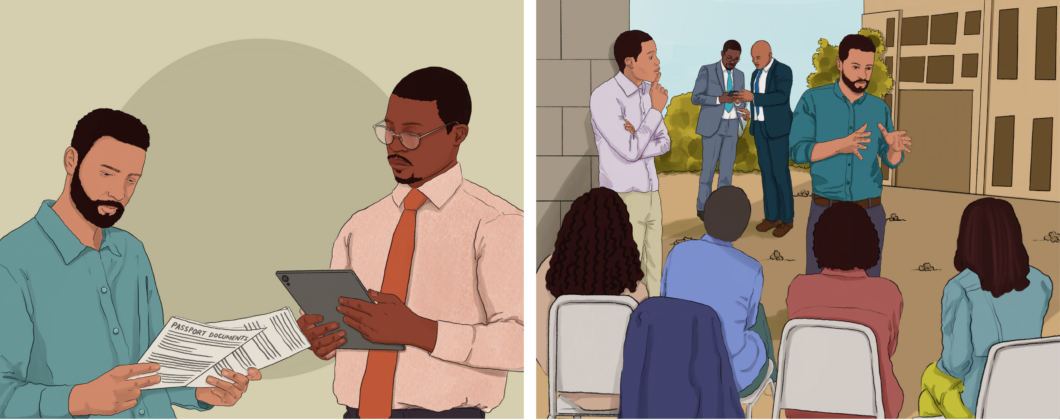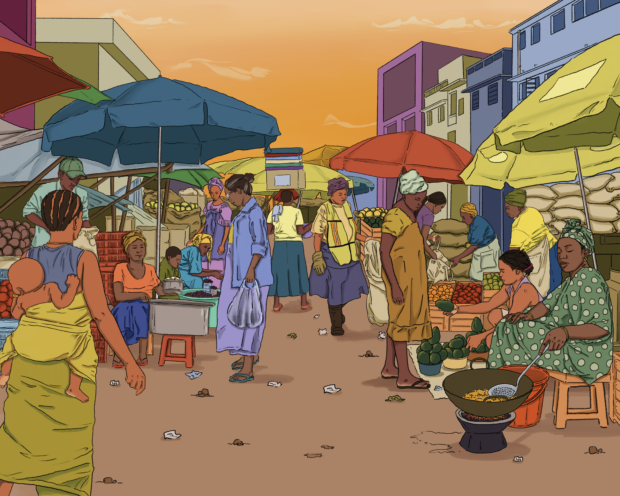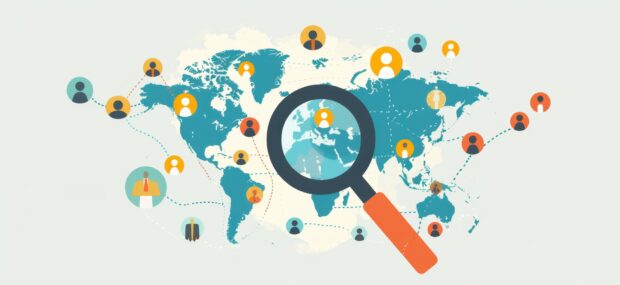“My great grandfather was a Ugandan. My granddad was a prominent Ugandan businessman. Here is my granddad’s Ugandan passport and here is my late father’s passport. Why do you then declare I am not Ugandan?”
Across East Africa today, there are tens of thousands of people who remain unrecognized by the states they call home, even though their families have lived there for multiple generations. This is Khalid’s reality.
Sayid shares a similar experience. “Many people like us across East Africa have become a laughingstock among immigration officers who put us through unfair and unconstitutional interviews during the passport application process – all just because of our skin colour. We currently cannot travel or access digital services because we do not have national IDs nor passports.”
As African nations rapidly digitise their services, seeking to stimulate much-needed economic and social growth, marginalised and socially excluded groups face an increased risk of being left further behind.
Khalid and Sayid’s stories are part of a series of articles highlighting people’s lived experiences of digital transformation, which are intended to provide insights into how data and digital technology are impacting people and communities across Africa.
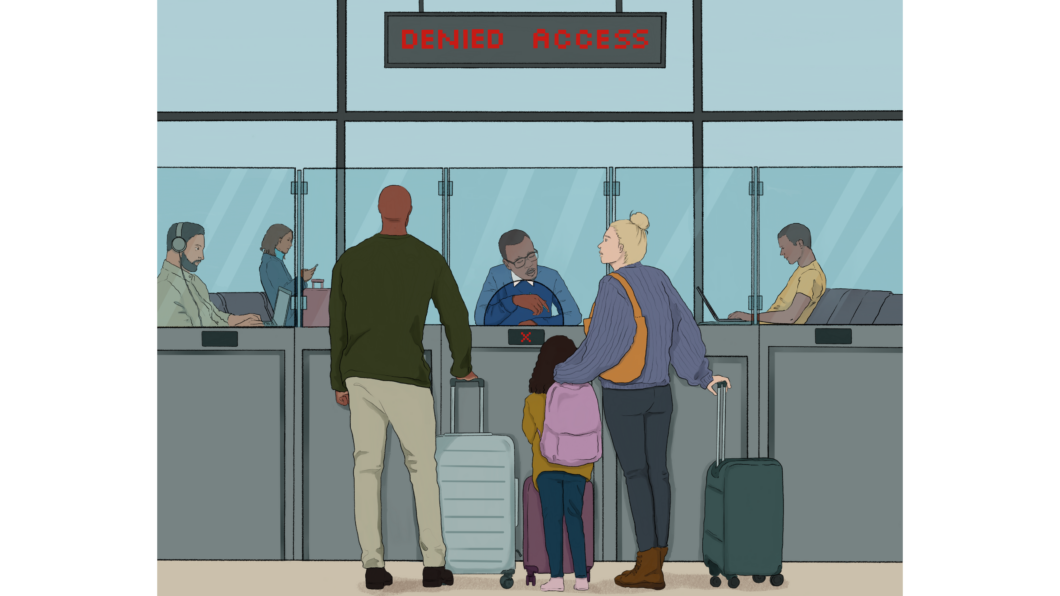
A continuous cycle of exclusion endangers not only people’s wellbeing today but jeopardises the futures of generations to come.
Over a century ago, migrants from diverse origins, especially the Middle East and Asia, ventured to East Africa – drawn by the promise of job opportunities emerging from commerce and infrastructure development during the industrial revolution. Many settled, marrying and integrating into communities. Yet today, their descendants like Khalid and Sayid tell stories not of belonging but of exclusion.
Khalid, for example, whose lineage in Uganda traces back to the 1800s, faces a paradox. His ancestors contributed to the development of regions like Arua city in Uganda where they established businesses, even aiding in building the community. “There are properties that were donated by my grandfather that house many offices in Arua City,” Khalid laments.
Yet, despite such deep roots, people like Khalid and thousands of others are caught in bureaucratic limbo.
Since the introduction of the National Identification and Registration Authority (NIRA) in 2015, every Ugandan is required to a possess a National ID, which is a prerequisite for accessing essential digital services such as opening a bank account or getting a SIM card. This move is part of Uganda’s broader ambition to digitize public and private services, and in turn, aim to improve accessibility and enhance service delivery across various sectors. However, this move also reveals challenges faced by marginalised communities who remain excluded from these advancements. For people like Khalid, obtaining an ID can prove challenging – sometimes even impossible, leaving them unable to reap the benefits of digital transformation.
In Kenya, Sayid’s personal story exemplifies the frustrations faced by many in Lamu town. He applied for a Kenyan passport in 2014, a process that for most citizens is routine. However, a decade later, Sayid still awaits his passport. The reason? A bureaucratic catch-22 where he needs his parents’ birth certificates to complete his application, documents that they themselves lack due to their own struggles with obtaining official identification.
This is not an isolated experience.
Many in Lamu face similar challenges, with some waiting up to two years just to receive a national ID. The impact of this wait is profound, affecting every aspect of daily life. As Sayid poignantly states, “Most of us miss opportunities like jobs because of lack of IDs.”
His story encapsulates the far-reaching consequences of ID systems that fail to address the issue of statelessness. Without recognized identification documents, people face serious limits in their daily life and future potential. Not only are they unable to marry, register to vote, or acquire salaried jobs, but they also cannot create bank accounts or enrol in universities.
The repercussions of statelessness extend beyond the individual, creating a domino effect that impacts entire families and threatens to perpetuate across generations. Sayid shared the case of a couple, both without IDs, who now have an 11-year-old child without a birth certificate. This lack of documentation has made it nearly impossible for the child to register for school, potentially denying them access to education and the opportunities it brings.
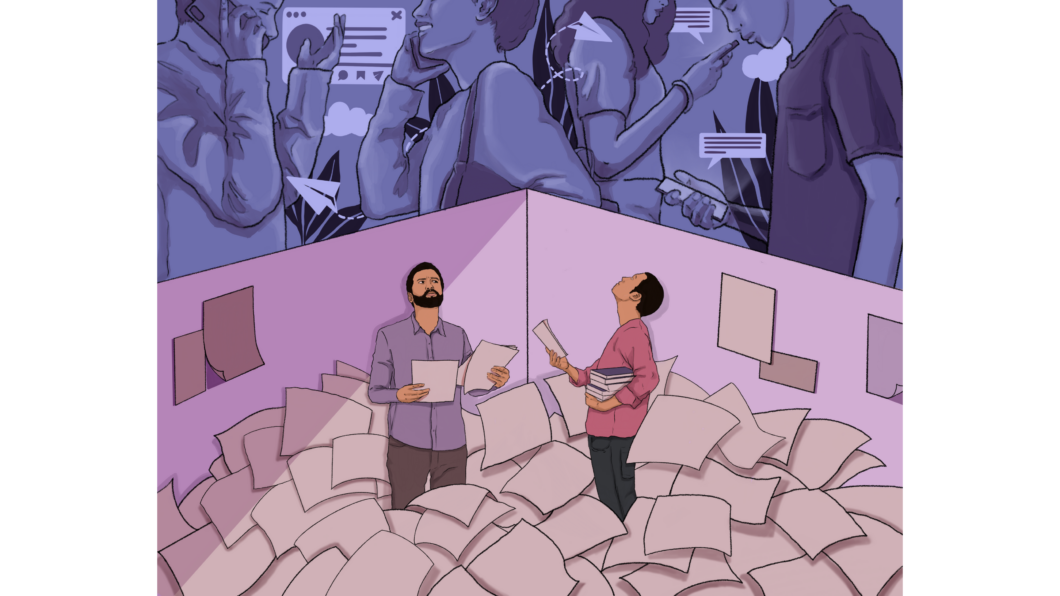
In Uganda and Kenya, the push for digitalization has transformed public services. Banking, telecommunications and healthcare are more accessible – for most people.
The stateless communities in East Africa face not only general governmental neglect but are also uniquely burdened by the digital divide. The rapid digital transformation in sectors such as finance, health, and education has largely bypassed these groups, creating a chasm that goes beyond traditional barriers to access.
For instance, digital banking and mobile money services, which have revolutionized financial transactions across the continent, remain out of reach for those without recognized IDs. This exclusion from the digital economy means that simple transactions, savings, and even receiving remittances are fraught with complications, often pushing stateless individuals towards less secure and more expensive informal financial systems.
At the heart of the identification issue lies a vetting process that, while intended to ensure national security, often serves as a barrier to migrant families – even over generations.
Sayid describes a system where individuals born in Kenya to foreign parents must undergo scrutiny to determine their eligibility for an ID. This process, fraught with delays and uncertainties, has led to a deep sense of alienation among certain communities.
The sentiment “Lamu si Kenya” (Lamu is not Kenya) has emerged as a bitter expression of this alienation. It’s a phrase that speaks volumes about the disconnect felt by those who consider themselves Kenyan in every way except on paper. Despite this, there’s a resilient spirit among the community, captured in the assertion “sisi ni wakenya” (we are Kenyans), reflecting their unwavering claim to Kenyan identity despite official obstacles.
This gap in digital inclusion is not merely an inconvenience but a significant factor that deepens the socio-economic and civic marginalization of stateless individuals. When cut off from the digital advancements that define modern life, they are not only left behind but are also increasingly vulnerable in societies that value digital participation as a core aspect of citizenship and basic human rights.
Such exclusion has profound personal and communal impacts. Without digital access, educational opportunities are curtailed, medical services are harder to reach, and the simple act of opening a bank account becomes an insurmountable challenge. “It’s like living in a digital world with analogue status,” Khalid laments, pointing to the irony of watching a society advance digitally while he and his community are left behind.
Digitalization can aid the path to recognition for stateless communities in East Africa - if there is political will and a commitment to ensuring inclusion.
For nations like Uganda and Kenya, recognising the historical injustices and moving towards inclusive digital and social policies will not only rectify past oversights but will enrich the national fabric. True digital transformation must be inclusive, ensuring that everyone, regardless of heritage, can partake in and benefit from the digital future.
As Khalid puts it, “Our forefathers helped build this land. We are not asking for favours, just the right to be recognized as part of it.” His words echo a fundamental truth: in the age of digital identity, visibility and recognition are not just technical issues but are deeply human ones.



